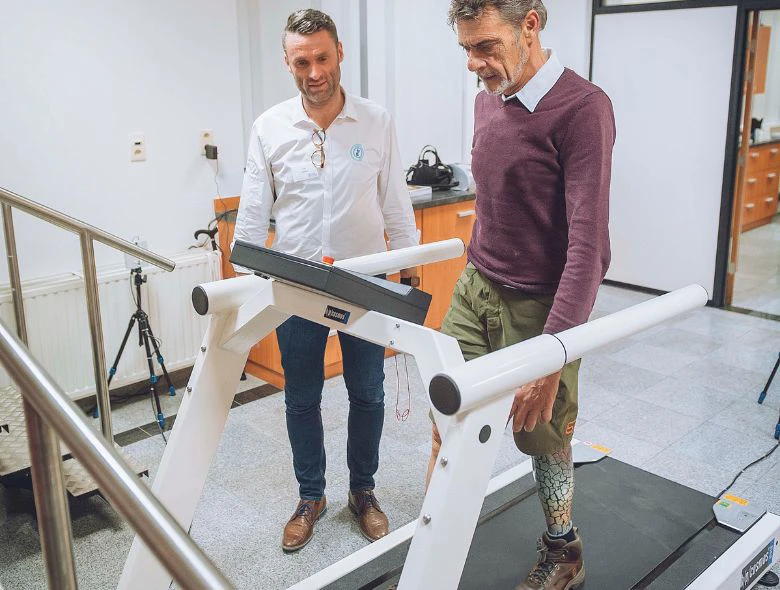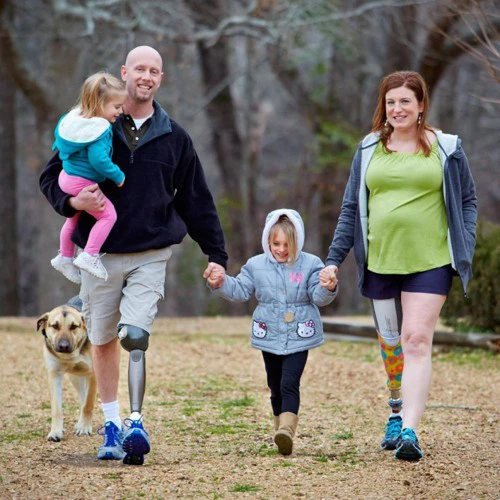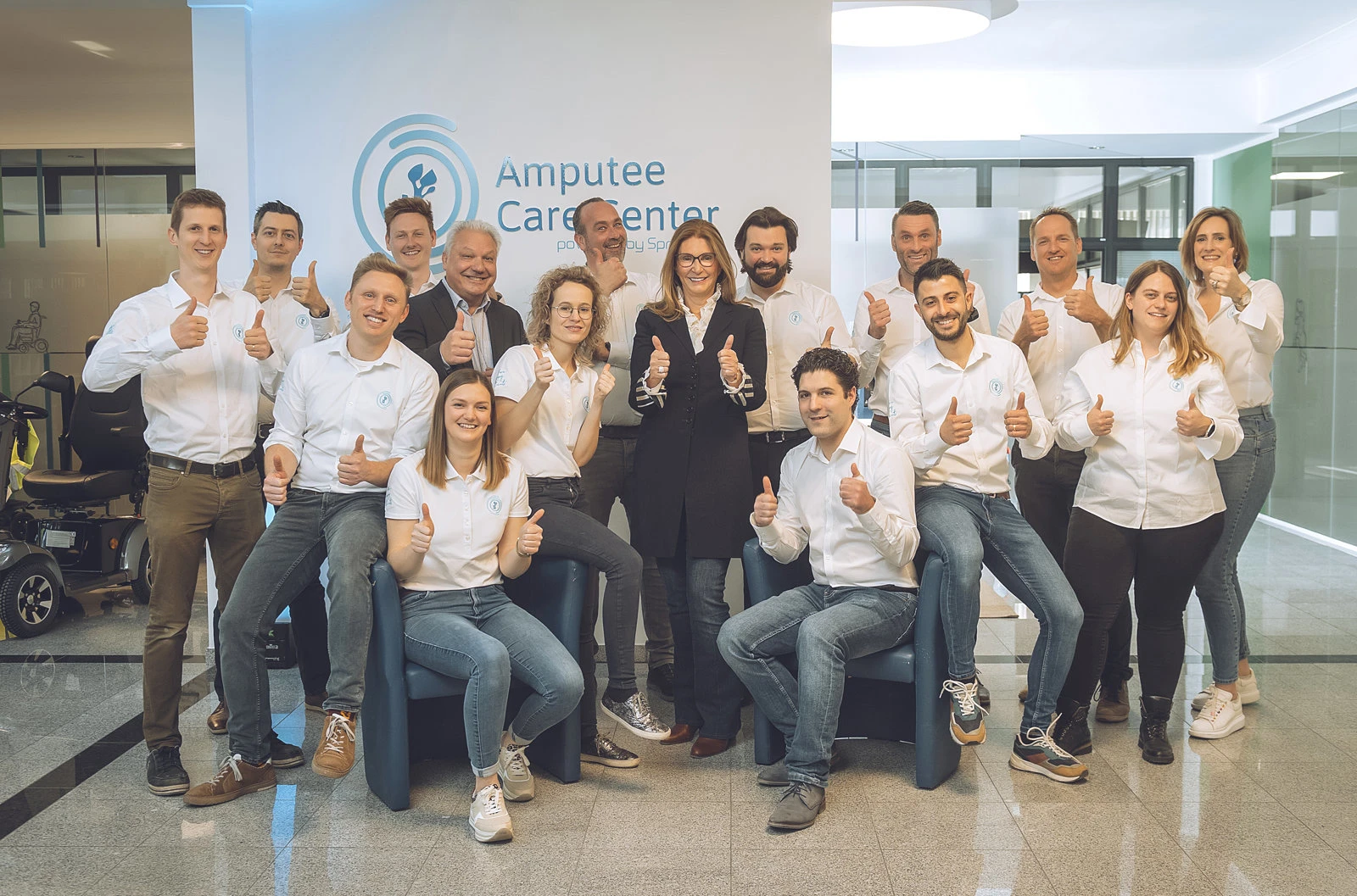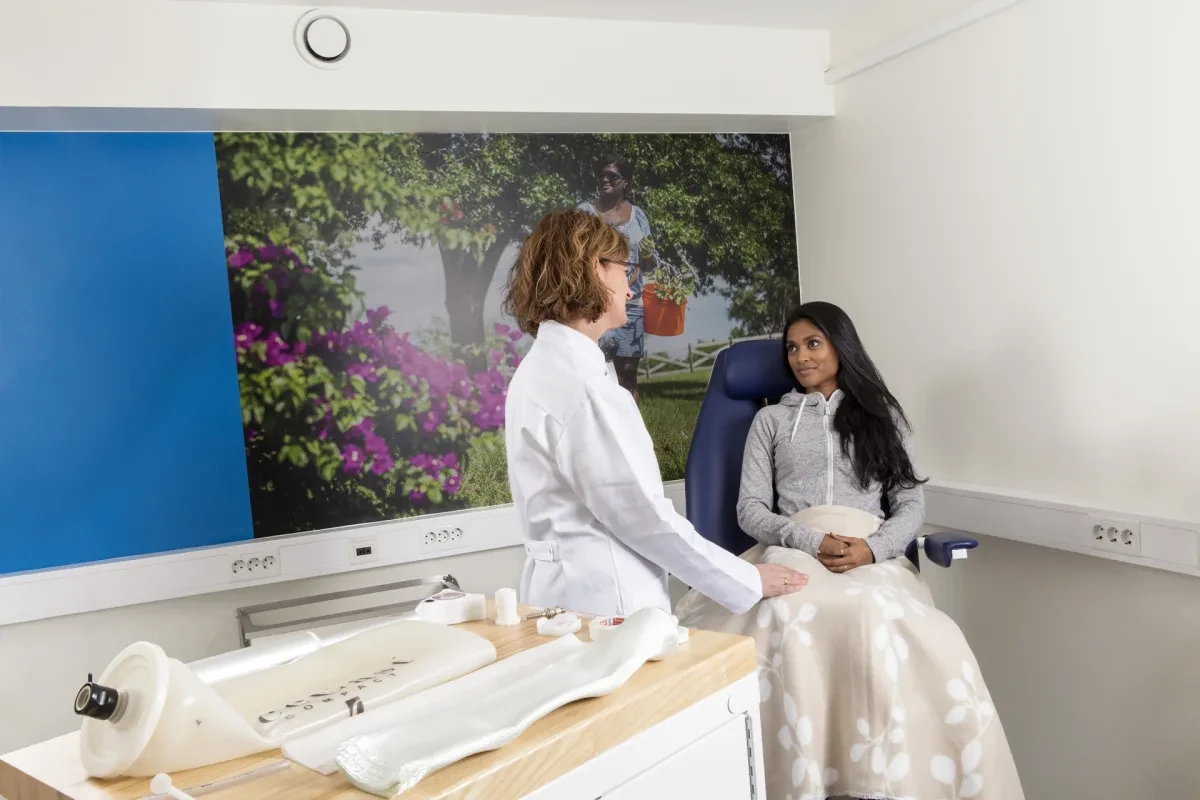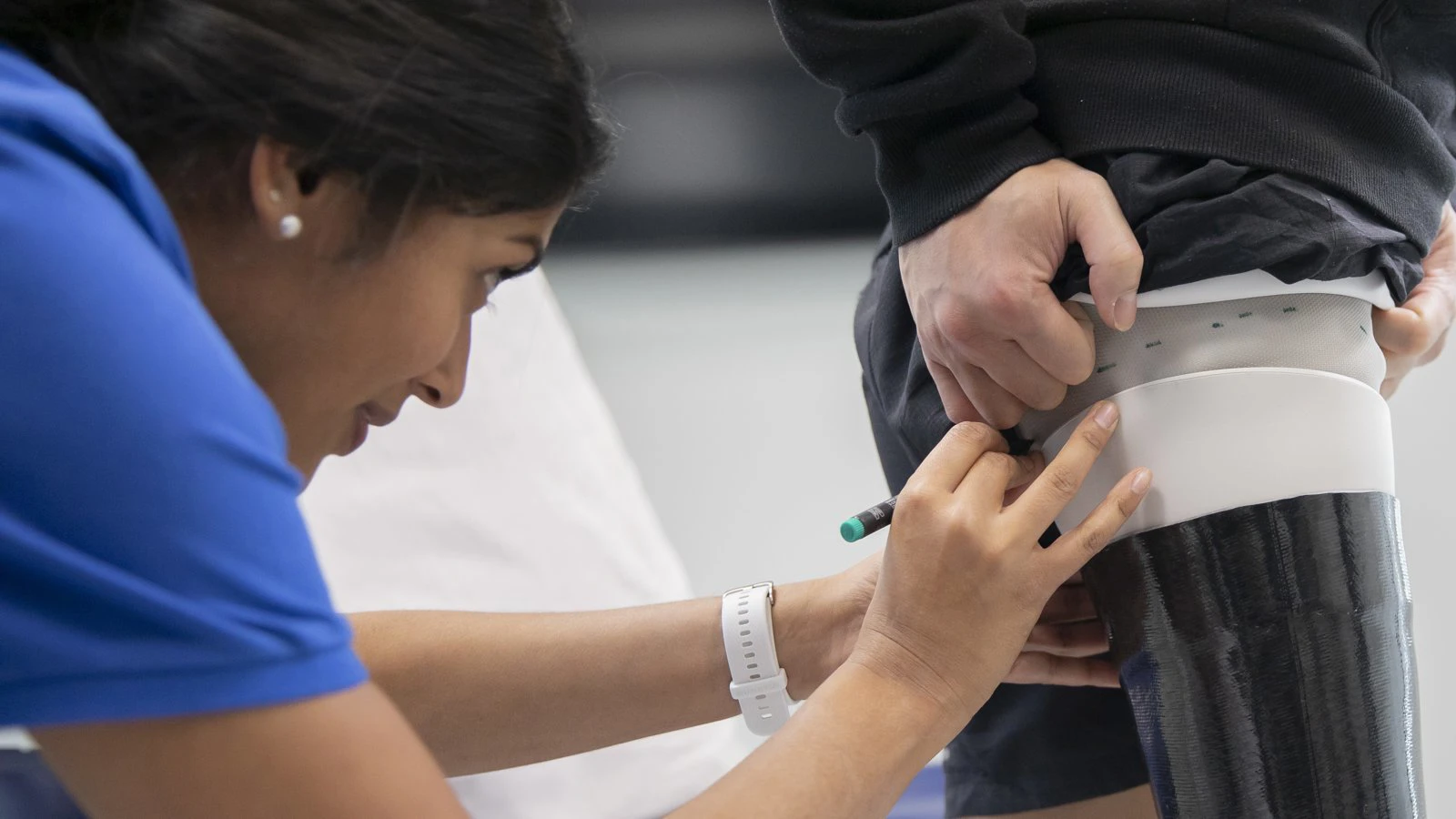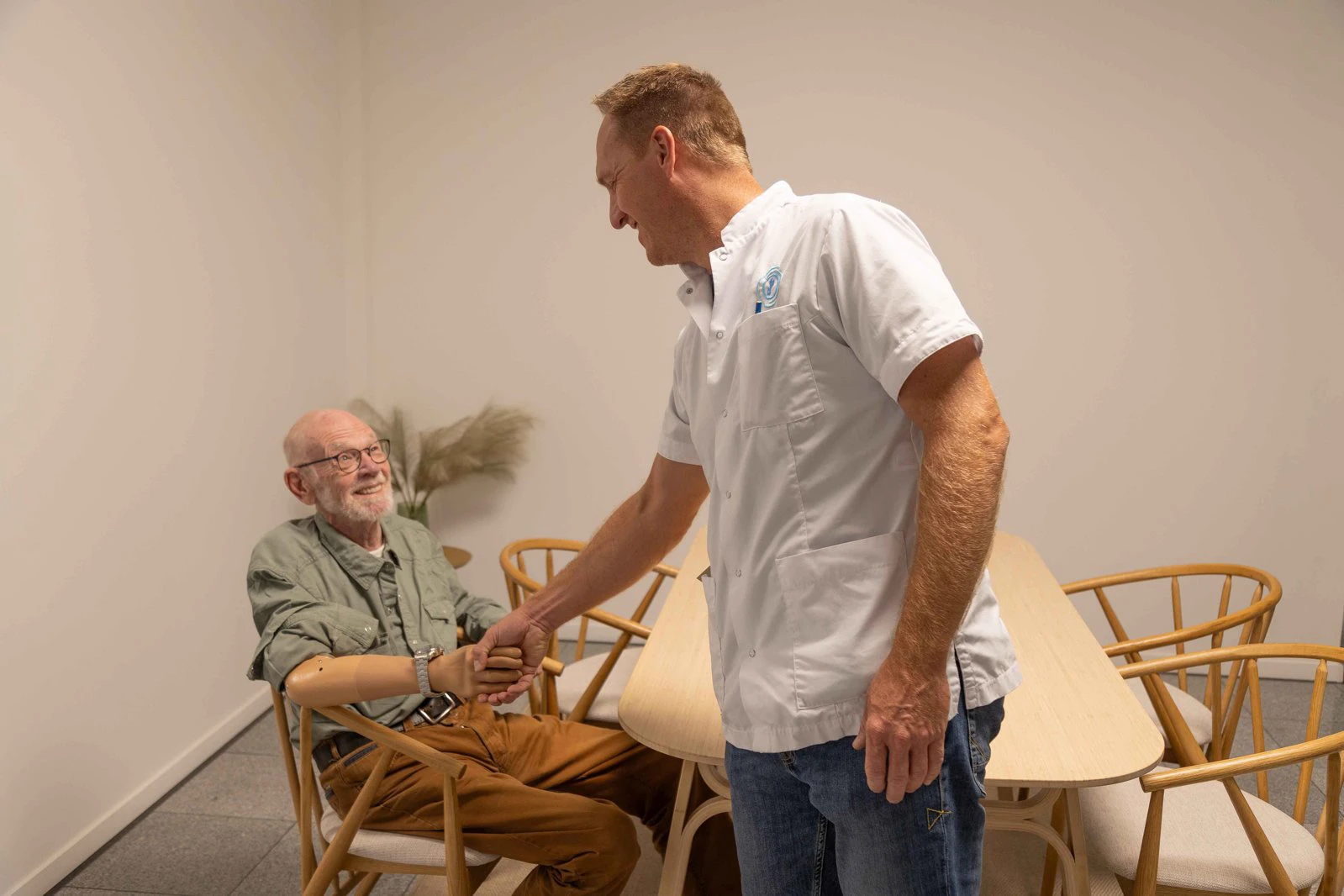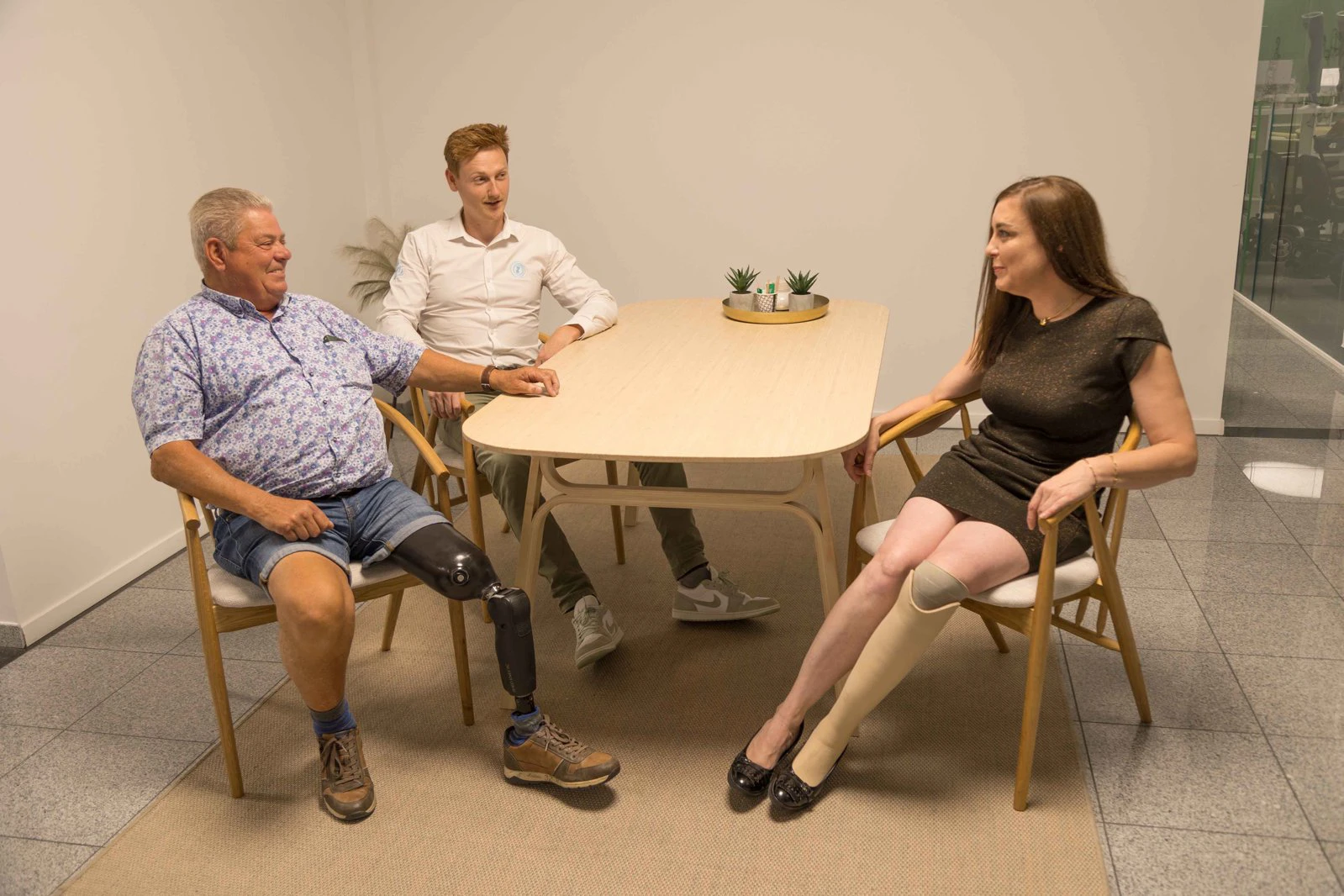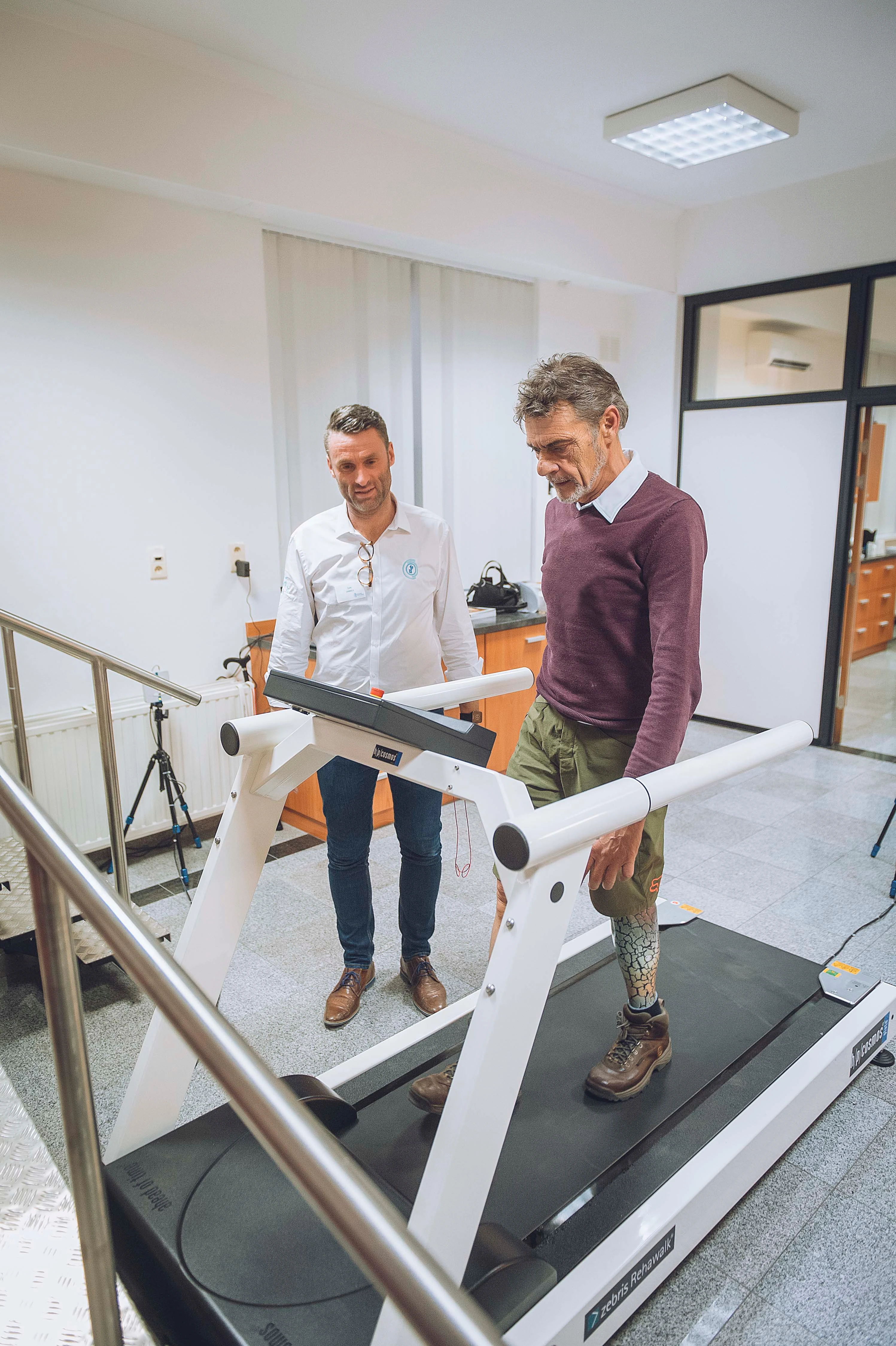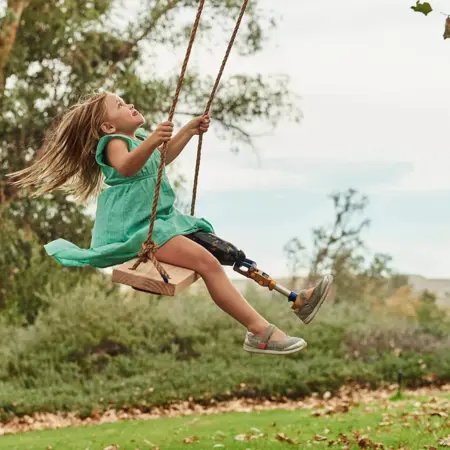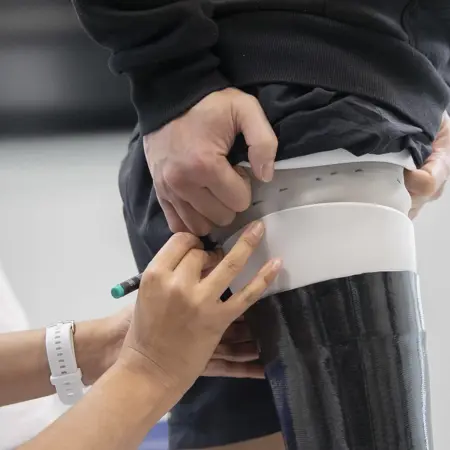You choose a brand-independent prosthetic centre with an experienced team of prosthetists and prosthetists, each experienced in their speciality for making arm prostheses, leg prostheses or paediatric (children's) prostheses. The Amputee Care Center is a “Focus” business unit of Spronken, one of the largest orthopaedic companies in the BeNeLux. The Spronken company has been a partner of most leading hospitals and rehabilitation centres in Belgium and the Netherlands for more than 60 years with its own measurement laboratory, gang lab, central workshop-prosthetics shop and more than 200 fitting locations.
At Amputee Care Center, we believe that choosing the right prosthesis (and brand of prosthetic components) requires expert analysis and expertise. The Amputee Care Center is a centre of excellence and a brand-independent prosthesis maker. Our main objective is to make the right prosthesis for you, to improve your quality of life and see you go out with a smile again. We would like your amputation not to feel like a limitation, but rather your prosthesis to be an enhancement. Choosing the right prosthetic components is key to this. With more than 60 years of experience in our family-owned orthopaedic business with 135 employees, we can perfectly assess what suits your needs and requirements.


